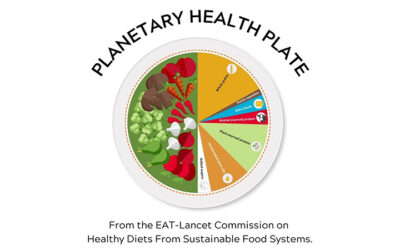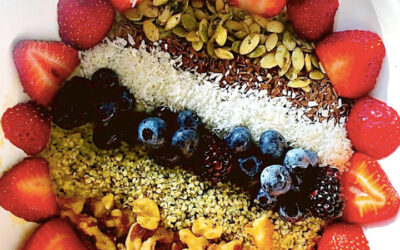Threading My Way To Plant-Based Living
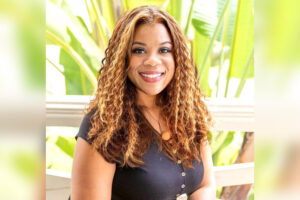 “Eat up your beans; they are good for you.” I still hear my grandmother’s voice whenever I think about plants. I grew up in the countryside of Jamaica, the West Indies, where I played many sports such as soccer, netball, track and field, cricket, and skipping rope with my friends and siblings. Included in my daily chores were feeding the dogs, milking cows or goats, collecting freshly laid eggs from the chickens, and all the other things that go along with living in the country. Most weekend activities included carrying a water pot on my head, house chores, peeling ginger, picking beans, cutting green bananas, climbing trees, shelling corn, or organizing yams and potatoes.
“Eat up your beans; they are good for you.” I still hear my grandmother’s voice whenever I think about plants. I grew up in the countryside of Jamaica, the West Indies, where I played many sports such as soccer, netball, track and field, cricket, and skipping rope with my friends and siblings. Included in my daily chores were feeding the dogs, milking cows or goats, collecting freshly laid eggs from the chickens, and all the other things that go along with living in the country. Most weekend activities included carrying a water pot on my head, house chores, peeling ginger, picking beans, cutting green bananas, climbing trees, shelling corn, or organizing yams and potatoes.
Our meals always included farm-to-table products – it might surprise many people to know that eating meat was a luxury item for low-income families living in the country. In the early 1990s, my siblings and I immigrated to the United States, and over time, that changed. I struggled with weight because of my eating habits – doughnuts for breakfast, Chinese food for lunch, and dinner. Living in New York City was fast-paced and stressful, making it easy to adopt an unhealthy lifestyle.
Time For Change
In my 30s, I hit rock bottom physically, emotionally, mentally, and financially. That experience climaxed to a near-death stroke and a wake-up call to HEAL (Healthy Eating Active Living). During the pandemic, my grandmother was hospitalized, the doctors found two lumps in my breast, my aunt is battling heart failure, and a dear friend passed away within hours of receiving news about her health.
All of these events made me think more seriously about the essence of my well-being. As a single mother of three children who light up my world, and a «glamma» of a beautiful granddaughter I adore, I knew it was time to take the determined steps to live more intentionally. So when Beth Skidmore reached out to me on LinkedIn, and after several conversations, I decided to embark upon a journey to a whole-food, plant-based living. It’s slow; it’s steady; it’s working.
Though this may not be mind-blowing information, a recent study published in the American Heart Association Journal provides new evidence on just how beneficial plant-forward living can be. We all know that eating fruits and veggies is a good idea, but this study focused on how a plant-based diet affects mortality and heart health. As a black Jamaican, my friends and family members are not always supportive of my plant-based living. There’s certainly some pressure to remain the same, and that has created shame and guilt and a feeling that I’m betraying my Caribbean roots and culture by making this plant-based way of life my new way of being. Still, I persist in my journey to achieve intentional transformation in my life.
How The THREAD System Can Help
My encouragement to those who are thinking about starting a plant-based lifestyle, but feel intimidated, is to begin small. A moderate change, such as lowering your animal food intake by one or two servings per day and replacing it with legumes or nuts as your protein source, can have a lasting positive impact on your health. As you evolve beyond your old way of living, seek more to understand yourself through self-reflection questions and stay in tune with who you are and what you want.
Below is my T.H.R.E.A.D system with six intentional transformation steps you can take to empower you on your journey to living a fulfilling and happier life! Try out the tool, and let me know your thoughts.
STEP 1: T-Think of the outcome you want to achieve. Ask yourself: Who am I? Who do I want to become? What impact do I want to make in the world?
Try taking a visit to your doctor, get a full blood panel done, so you know where you stand in your health. This is a great way to practice self-care. Then check out some new recipes to try.
STEP 2: H-Harvest lessons learned from the past. Ask yourself: What season of life am I in right now? What have I fought and overcome in my life? What have I learned from them?
Try exploring green leafy vegetables like kale, collards, spinach, and chard daily. Enjoy exploring good fats in olives, nuts, nut butters, seeds, edamame, and avocados.
STEP 3: R-Release unsupportive patterns and unhealthy behaviors and forge a new path forward. Ask yourself: Which things felt essential to me ten years ago, the no more extended matter now? How can I improve my health and wellbeing this week/month/year?
Try changing the way you think about meat and dairy. Have smaller amounts. Treat them like a side rather than a centerpiece.
STEP 4: E-Enlist trusted allies and leverage valuable tools to support your plant-based lifestyle. Ask yourself: who is my life? Can I enlist resources in my life?
Consider networking with others who are on a similar path. Follow Rooted on social media for tips and community support. Or, perhaps even volunteer with an organization like Rooted.
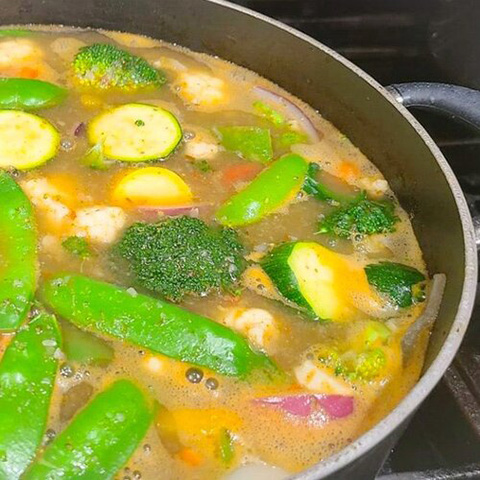 STEP 5: A-Adopt new mindsets and confidently be your true authentic self. Ask yourself: What good habits do I have? Which good habits would I like to adopt? What bad habits would I want to get rid of?
STEP 5: A-Adopt new mindsets and confidently be your true authentic self. Ask yourself: What good habits do I have? Which good habits would I like to adopt? What bad habits would I want to get rid of?
Instead of fried foods, go for steaming, grilling, braising, or stir-frying to preserve the flavor and nutrients in whole plants.
STEP 6: D-Dream of a new self and design your healthy life with intentionality. Ask yourself: what do I want to accomplish by this time next year? In 3 years? Five years? Ten years?
Journal your intentions and progress. This is an excellent tool for engaging your sensing, empowering mindfulness practice, and logging the things you are most grateful for.
Change Starts With Us
Plant-based living is not a » diet» – that approach is just too limited for me. Choosing to live a healthy lifestyle is the right thing for me, my family, my community, and the world. It’s all about being intentional and eating more of the right plants, avoiding the wrong kind, eliminating unhealthy foods, and moderating our intake of animal products.
Today, I’ve come to appreciate being a Rooted Santa Barbara Board Member because it feels like a support team. Interacting with others who are modeling the journey I’m on is invaluable. It helps me know I am not alone on my healthy path. Whether I’m reading our Heartbeet blog, or watching micro-learning videos, participating in team discussions, or engaging in social media posts, I’m always left feeling inspired. I want you to feel the same as well. I hope this post encourages you to take one small daily step to achieve intentional transformation in your health. Remember, change starts with us, and only when we help ourselves are we in a better position to help others.
Sign up for our newsletter for more tips to help you succeed in your plant-based adventure.
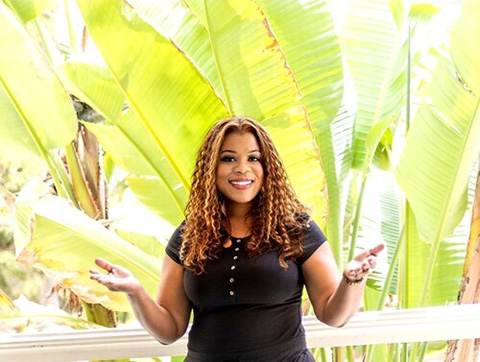 Leonie Mattison, EdD, MBA (Dr. Lee) is an award-winning Organizational and Talent Development Practitioner, Adjunct Graduate Professor, Founder of The Thread Movement, and Author of the Thread Collection, which is empowering survivors around the globe to achieve intentional transformation. She holds a Doctorate, and a master’s in Business Administration and is Six Sigma Green and Black Belt certified. Having been raised in the Caribbean and lived and worked on both the East and West Coasts, she’s delighted to share her passion. She feels honored to contribute her cultural lenses to HEAL- Healthy Eating and Active Living initiatives. As a stroke and trauma survivor, she’s eager to learn new ways of linking and leveraging faith and nutrition to motivate people to become CEOs of their health and wellness.
Leonie Mattison, EdD, MBA (Dr. Lee) is an award-winning Organizational and Talent Development Practitioner, Adjunct Graduate Professor, Founder of The Thread Movement, and Author of the Thread Collection, which is empowering survivors around the globe to achieve intentional transformation. She holds a Doctorate, and a master’s in Business Administration and is Six Sigma Green and Black Belt certified. Having been raised in the Caribbean and lived and worked on both the East and West Coasts, she’s delighted to share her passion. She feels honored to contribute her cultural lenses to HEAL- Healthy Eating and Active Living initiatives. As a stroke and trauma survivor, she’s eager to learn new ways of linking and leveraging faith and nutrition to motivate people to become CEOs of their health and wellness.
Investigación: Placa de Salud Planetaria
An international body of researchers have determined that a primarily plant-based food diet is the most optimal diet...
Budín de chía
Budín de chía Me encanta esta receta porque es muy fácil y rápida y puedo comerla antes de ir a trabajar por la...
Dermatólogo local publica artículo de investigación sobre dieta y dermatología
Local Dermatologist Jason Solway, DO of Sansum Clinic was the lead author on a recently published research article in...
Apoyando nuestro trabajo : actualmente somos una organización de voluntarios y vemos un espacio increíble y necesitamos crecer durante el próximo año. Entendemos que este momento presenta enormes desafíos para todos, por lo que, si bien buscaremos apoyo para ayudar a hacer avanzar nuestra visión, también estamos pensando de manera creativa para mantener nuestros costos bajos para generar recursos de manera eficiente y ofrecer programación a bajo costo o sin costo alguno. nuestra comunidad. Si desea apoyar nuestro trabajo, esperamos que considere hacer una donación a uno de nuestros programas de donaciones a través de nuestro socio comunitario, ¡ la Fundación Santa Bárbara !

